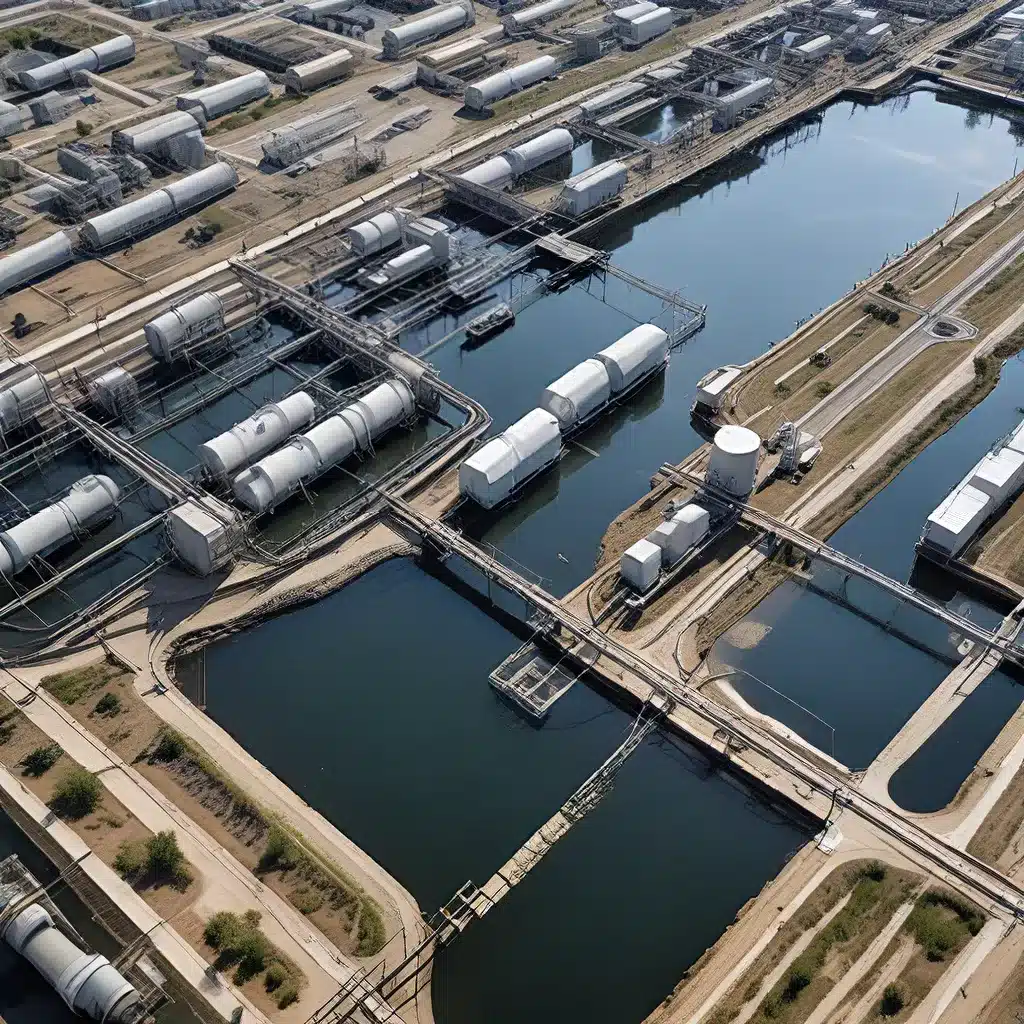
As the world grapples with the ever-increasing demand for clean water and the growing challenges of wastewater management, the role of sensor networks and IoT (Internet of Things) technologies has become increasingly crucial. In the complex and dynamic realm of wastewater treatment, the integration of distributed control systems (DCS) empowered by adaptive algorithms offers a promising solution to ensure environmental compliance and optimize operational efficiency.
Adaptive Wastewater Treatment Networks: The Convergence of Sensor Technology and Distributed Control
Wastewater treatment plants are inherently complex systems, with multiple interconnected processes and variables that must be carefully monitored and controlled to meet stringent environmental regulations. Conventional centralized control approaches often struggle to keep pace with the dynamic nature of these systems, leading to suboptimal performance and potential compliance issues.
Distributed Control Systems (DCS) have emerged as a game-changer in this domain, enabling the deployment of adaptive algorithms that can dynamically adjust process parameters based on real-time sensor data. By leveraging a decentralized architecture, DCS allows for enhanced flexibility, scalability, and fault tolerance, ensuring the reliable operation of wastewater treatment facilities.
At the heart of these adaptive wastewater treatment networks are sensor nodes that continuously monitor a wide range of parameters, such as flow rates, pH levels, dissolved oxygen concentrations, and the presence of contaminants. These sensors, strategically placed throughout the treatment plant, transmit their data to the distributed control system, which then processes the information and makes intelligent decisions to optimize the treatment processes.
Distributed Algorithms: The Brains Behind Adaptive Wastewater Treatment
The key to the success of adaptive wastewater treatment networks lies in the distributed algorithms that power the DCS. These algorithms are designed to respond dynamically to changing conditions, ensuring that the treatment processes are constantly optimized to maintain environmental compliance and maximize resource efficiency.
One such example of a distributed algorithm is the Model Predictive Control (MPC) approach. MPC algorithms use real-time sensor data and mathematical models of the treatment processes to predict future system behavior and make proactive adjustments to control variables, such as chemical dosing or aeration rates. By anticipating process changes, MPC can prevent compliance violations and maintain optimal performance even in the face of fluctuating influent conditions or equipment failures.
Another innovative approach is the use of multi-agent systems in wastewater treatment networks. In this framework, individual control agents, each responsible for a specific process or subsystem, collaborate and coordinate their actions to achieve the overall optimization of the treatment plant. This distributed decision-making capability allows the system to adapt to changing demands and respond more quickly to dynamic conditions, such as sudden changes in wastewater composition or flow rates.
Ensuring Environmental Compliance Through Adaptive Control
The integration of sensor networks and distributed control algorithms in wastewater treatment plants has far-reaching implications for environmental compliance and sustainability. By continuously monitoring and dynamically adjusting the treatment processes, these adaptive systems can ensure that effluent quality consistently meets or exceeds regulatory standards, safeguarding the health of local ecosystems and water bodies.
Moreover, the energy-efficient nature of these distributed control systems can lead to significant cost savings and reduced environmental impact. By optimizing aeration, pumping, and chemical dosing, the adaptive algorithms can minimize energy consumption and resource usage, making wastewater treatment operations more sustainable and environmentally friendly.
Challenges and Opportunities in Adaptive Wastewater Treatment Networks
While the benefits of adaptive wastewater treatment networks are clear, the implementation and maintenance of these systems are not without their challenges. Cybersecurity concerns, for instance, must be addressed to protect the critical infrastructure of wastewater treatment plants from potential cyber threats. Robust data encryption, access control, and intrusion detection mechanisms are essential to safeguard the integrity of the sensor data and control systems.
Additionally, the scalability and integration of these adaptive networks must be carefully considered. As wastewater treatment plants grow in size and complexity, the DCS architecture must be able to seamlessly accommodate the addition of new sensors, controllers, and communication protocols, ensuring the overall system’s flexibility and reliability.
Despite these challenges, the future of wastewater treatment holds immense promise. Advancements in IoT, machine learning, and edge computing are paving the way for even more sophisticated adaptive control systems. These technologies can enable real-time data analytics, predictive maintenance, and autonomous decision-making capabilities, further enhancing the efficiency and environmental compliance of wastewater treatment operations.
By embracing the convergence of sensor networks, distributed control, and adaptive algorithms, the wastewater treatment industry can meet the growing demand for clean water, minimize environmental impact, and contribute to the sustainable management of our precious water resources. As we navigate the complexities of the modern world, these innovative solutions will play a crucial role in shaping a more resilient and environmentally responsible future.
Sensor-Networks.org is committed to exploring the latest advancements in sensor technology, IoT, and distributed control systems, empowering professionals, researchers, and enthusiasts to stay at the forefront of this rapidly evolving field.
Key Takeaways
- Distributed Control Systems (DCS) are essential for managing the complex and dynamic processes in wastewater treatment plants, enabling adaptive control and optimization.
- Sensor networks provide the critical real-time data that distributed algorithms use to dynamically adjust treatment processes and ensure environmental compliance.
- Model Predictive Control (MPC) and multi-agent systems are examples of innovative distributed algorithms that can anticipate process changes and coordinate actions for optimal performance.
- Adaptive wastewater treatment networks improve energy efficiency, reduce resource usage, and minimize the environmental impact of wastewater treatment operations.
- Addressing cybersecurity concerns and scalability challenges are key considerations in the implementation and maintenance of these adaptive systems.
- Emerging technologies like IoT, machine learning, and edge computing hold the potential to further enhance the capabilities and automation of adaptive wastewater treatment networks.